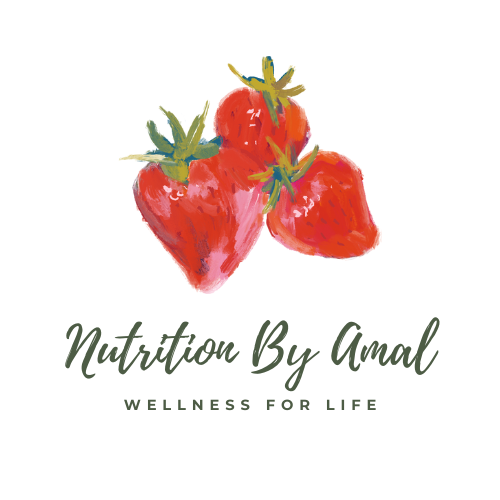What Are Bile Salts and When to Use Them: A Guide to Supporting Your Digestive Health
Bile salts play a crucial role in our digestive process, yet they are often an overlooked component of our overall gut health. If you’ve ever wondered what bile salts are, how they support digestion, and when you should consider using them—or limiting them—this guide will break down their significance and help you make informed decisions about their role in your health.
What Are Bile Salts?
Bile salts are compounds produced by the liver from cholesterol and are a key component of bile, a digestive fluid stored in the gallbladder. When we eat, bile salts are released into the small intestine to help break down fats. Specifically, they act as emulsifiers, which means they help to dissolve fats in the digestive system, allowing enzymes like lipase to break them down more effectively. This process makes fats easier to absorb and utilize by the body.
In addition to helping digest fats, bile salts also aid in the absorption of fat-soluble vitamins (A, D, E, and K) and support the elimination of certain waste products, such as cholesterol and bilirubin, through the digestive tract.
When to Use Bile Salts
There are situations where bile salts may be helpful in supporting digestion, especially for individuals who may not produce enough bile naturally. Some common conditions that may warrant the use of supplemental bile salts include:
1. Gallbladder Removal (Cholecystectomy):
When the gallbladder is removed, the body may have a harder time storing and releasing bile in the quantities needed for efficient digestion of fats. In this case, bile salts can help provide additional support by mimicking the action of bile and improving fat digestion.
2. Fat Malabsorption or Digestive Disorders:
Conditions such as irritable bowel syndrome (IBS), Crohn’s disease, or celiac disease can affect the body's ability to absorb nutrients properly. If fat absorption is compromised, bile salts may be used to help improve the breakdown of fats and optimize nutrient absorption.
3. Low Bile Production:
Some people may have insufficient bile production due to liver or gallbladder issues, leading to digestive discomfort, bloating, or fatty stools. Supplementing with bile salts can help alleviate these symptoms by supporting fat digestion.
4. Supporting Weight Loss:
If you're on a low-fat diet or undergoing a weight loss program, bile salts might be helpful to ensure that your body continues to absorb essential fat-soluble vitamins and nutrients while still processing dietary fats efficiently.
How to Use Bile Salts
Bile salts are typically available in supplement form, either as standalone pills or as part of a digestive enzyme complex. It's essential to take them with meals, particularly those containing fat, to ensure they can assist in the digestion process.
Dosage and duration of use vary based on individual needs and health conditions, so it’s always best to consult with a healthcare professional before starting any supplementation regimen. They will consider factors such as your digestive health, underlying conditions, and any other medications or supplements you may be taking.
When to Limit or Avoid Bile Salts
While bile salts can be beneficial in supporting digestion, it's crucial to be mindful of when and how much you use them. Excessive or inappropriate use of bile salts can lead to unwanted side effects and potentially cause liver damage in the long run. Here’s when you should be cautious:
1. Liver Disease:
If you have liver disease or any form of compromised liver function, such as cirrhosis or hepatitis, you should be cautious about supplementing with bile salts. The liver is responsible for bile production, and excessive supplementation can put added strain on the liver. Always consult a healthcare provider before using bile salts if you have any liver-related conditions.
2. Excessive Use:
Overuse of bile salts, particularly in individuals with a healthy gallbladder and liver, can lead to diarrhea or gastrointestinal discomfort. Bile salts stimulate the digestive process, and too much can result in an imbalance. Always use supplements as directed and avoid excessive doses.
3. Cholestasis or Blocked Bile Ducts:
Cholestasis is a condition in which bile flow is reduced or blocked, often due to gallstones or liver disease. In such cases, using bile salts without medical supervision could exacerbate the problem. People with a history of gallstones or bile duct blockages should avoid bile salt supplementation unless advised by a doctor.
4. Interacting Medications:
Bile salts may interact with certain medications, especially those that affect liver function or bile flow. For instance, drugs that reduce bile production (like some statins or cholesterol-lowering drugs) could conflict with bile salt supplements, leading to unwanted side effects. Always check with a healthcare provider if you're on any medication before starting bile salt supplementation.
Signs You Might Need to Limit or Discontinue Use
If you’re using bile salts and experience any of the following symptoms, it’s important to consult with your doctor and consider adjusting or stopping the supplementation:
- Abdominal pain or cramping
- Persistent diarrhea or loose stools
- Nausea or vomiting
- Dark or unusually discolored urine
- Jaundice (yellowing of the skin or eyes)
These symptoms could indicate an underlying issue with liver function or bile flow, and using bile salts may not be appropriate for your specific situation.
Conclusion
Bile salts are an essential component of digestion, aiding in the breakdown and absorption of fats and fat-soluble vitamins. They can be especially helpful for individuals with gallbladder issues, fat malabsorption, or low bile production. However, it’s important to use bile salts thoughtfully and consult a healthcare provider before starting supplementation—especially if you have liver or digestive conditions. Too much bile salt or using them improperly can lead to complications, so balance and professional guidance are key.
By understanding when bile salts are beneficial and when to avoid them, you can better support your digestive health and overall well-being.

